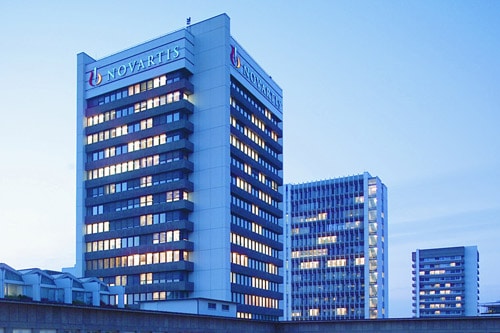
The turnaround effort at Novartis’ ailing eyecare division Alcon seems to be having an effect, with sales up 3% to $1.5bn in the second quarter after a long period of contraction.
The sales improvement hasn’t been matched by an improvement in profitability – with the operating loss widening to $19m from $7m a year ago as a result of the restructuring effort. Nevertheless, Novartis’ CEO Joe Jimenez said this morning that the uptick has firmed up the chances that the division could be separated from the rest of the group via a sale or spin-off.
Novartis first revealed it was reviewing options for the devices portion of Alcon’s business – focusing on surgical devices and contact lenses – back in January, after subsuming the division’s ophthalmic drugs into its broader pharma business. The unit failed to meet its target of returning to growth by the end of 2016, but Novartis says it is now predicting low single-digit growth for 2017.
Jimenez said that the improvement means that a capital exit – for example via an initial public offering (IPO) – is now a possibility.
Alcon’s recovery came against the backdrop of a 2% fall in group sales to $12.2bn – mainly because of continued generic competition to cancer blockbuster Gleevec (imatinib) which drove sales down more than 40% to $506m in the quarter – but with signs that the company’s new products are poised to push it back into positive growth.
Immunotherapy Cosentyx (secukinumab) for psoriasis, ankylosing spondylitis and psoriatic arthritis rocketed 90% to reach $490m in the quarter, while slow-burner Entresto (sacubitril and valsartan) for heart failure contributed $110m and is predicted to reach $500m for the year as a whole.
A string of positive pipeline news – including a positive FDA advisory committee meeting for CAR-T cancer immunotherapy CTL019 and encouraging data on ophthalmic drug brolucizumab and ACZ885 (canakinumab) in heart attack – “reinforces the strength of our pipeline”, said Jimenez.
Generics unit Sandoz was hit by pricing pressure however, with sales declining 4%. Novartis said the recent approval and launch of two biosimilar drugs in the EU – Erelzi (etanercept) to treat immunological diseases such as rheumatoid arthritis, psoriasis, and psoriatic arthritis and Rixathon (rituximab) to treat blood cancers and immunological disease – would help spur growth but cautioned that it could be slow to come as the market adapts to the availability of the new products.
Nevertheless, Jimenez said the performance of new drugs and the pipeline “reinforces our confidence in our next growth phase, which we expect to start in 2018”.




